
FULL CONFERENCE - Inform USA Conference Virtually Yours: Frontline Edition
- Registration Closed
The Fall AIRS Conference is a 3 day event with sessions and activities aimed at expanding the skills and knowledge of frontline professionals and their supervisors. This event is perfect for individuals who fill or support roles that relate to Community Resource Specialists and Database Curators. Included in the full 3 day registration is"
- Access to 29 educational sessions and 2 plenary keynote sessions on assorted topics supporting Service Delivery, Database Curation and, Personal and Professional Development (Here is a close-to-final LIST OF SESSIONS. There are usually some adjustments as the schedule develops in detail). Sessions are held from 11am to 5pm Eastern Tuesday and Wednesday and 11am to 4:30pm Eastern Thursday.
- Participation in the DEI Symposium “Check Your Blind Spot” on Wednesday October 6th from 1pm to 4pm Eastern featuring Camica Credle and J Lamont Harris.
- Access to all recordings and session materials post-conference for 90 days.
- Participation in the “Building Healthy Habits” step/activity challenge from Friday October 1st to Thursday October 14th (get an idea of what "Walker Tracker" is HERE).
- Three morning mini-classes curated by AIRS to promote physical and mental wellness during times of virtual fatigue (includes Meditation, Chair Yoga, and Eye Yoga). Pre session mini-classes will be held at 10:45am Eastern Tuesday and 10:15am Eastern Wednesday and Thursday.
- Virtual Swag Bag
-
Contains 3 Component(s), Includes Credits
Workforce burnout and compassion fatigue: frontline specialists are at even more risk now than ever. If your I&R program went through the initial phase of the pandemic unphased, our hat is off to you. If, however, your specialists need a little extra TLC, or maybe you went through turnover due to the high volume of activity, this session is for you. United Way of Greater Houston’s 211 Texas/United Way Helpline recognized the impact of stressful calls and work isolation of remote-working specialists handling those calls. About 30 days after moving to a remote environment (with no notice, by the way!), the Helpline implemented twice-monthly Coffee Time conversations. These conversations meet specialists where they are, providing a safe space for discussion. Although the facilitator will present a topic, coffee time takes on its own form, becoming whatever the group needs it to be. Some specialists describe it as “magic,” while others say they can’t miss the sessions but have difficulty explaining exactly why Coffee Time is an important component of their work experience.
Workforce burnout and compassion fatigue: frontline specialists are at even more risk now than ever. If your I&R program went through the initial phase of the pandemic unphased, our hat is off to you. If, however, your specialists need a little extra TLC, or maybe you went through turnover due to the high volume of activity, this session is for you.
United Way of Greater Houston’s 211 Texas/United Way Helpline recognized the impact of stressful calls and work isolation of remote-working specialists handling those calls. About 30 days after moving to a remote environment (with no notice, by the way!), the Helpline implemented twice-monthly Coffee Time conversations. These conversations meet specialists where they are, providing a safe space for discussion. Although the facilitator will present a topic, coffee time takes on its own form, becoming whatever the group needs it to be. Some specialists describe it as “magic,” while others say they can’t miss the sessions but have difficulty explaining exactly why Coffee Time is an important component of their work experience.
Key Takeaways:
- Understanding Coffee Time from several perspectives: agency leadership, managers, facilitators, and specialists
- How to implement a similar process for your agency (choosing a facilitator, determining "ground rules" for conversations, and establishing talking points for meetings (i.e, using an established set of talking points vs. using new ones each time))
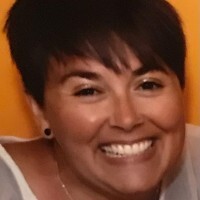
Casey Harvey
Information Referral Specialist
211 Texas/United Way Helpline, Houston, Texas
Casey Harvey began her work as an Information Referral Specialist with the 211 Texas Helpline through the United Way of Greater Houston during the pandemic of 2020. Before relocating to Texas, Casey worked for a variety of charitable organizations in the state of Hawaii. She served a year with Aloha United Way 211 and worked for over 2 years helping the homeless and those with mental illness connect with programs that offered help and solutions. Casey has fought hard to return to work after 9 years on disability. To help raise suicide awareness, she presented her personal story at the Out of Darkness Suicide Awareness Walk two years in a row. During her downtime, you can find Casey playing fetch with her cat – Mr. Fred Rogers, painting and working towards earning her associate degree in communication.

Nancy Weatherall
Resources Specialist in Aging and Disabilities
211 Texas/United Way Helpline, Houston, Texas
Nancy Weatherall is a Certified Resources Specialist in Aging and Disabilities, who joined 211 Texas United Way of Greater Houston in 2019. She serves as the Liaison between the United Way and partnering senior service agencies. Prior to moving to Texas, Nancy worked for over 6 years as an Information Referral Specialist at Delaware 211, a United Way helpline. She became a Child Development Specialist under the Help Me Grow program and advocated for parents as a Family Support Provider through Champions for Children’s Mental Health. Although her degree is in multimedia design, Nancy has spent over a decade working in social services. She is passionate about helping others, particularly older adults and those with disabilities. Nancy is a native Spanish speaker, fluent in both English and Spanish. When she is not working, she enjoys spending time with her family who originated from Uruguay, her children, and her local friends.
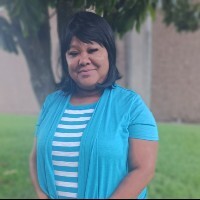
Shondria Criss
Information and Referral Specialist
211 Texas/United Way Helpline, Houston, Texas
Shondria Criss is a Certified Information and Referral Specialist and has worked at the United Way of Greater Houston for the past 6 years. Shondria has experience in crisis intervention, disaster recovery, human services, community investment and community resources. She holds an associate degree in Human Service Technology and is a certified Chemical Dependency Counselor.
-
Contains 2 Component(s), Includes Credits
George Bonano, professor of clinical psychology at Columbia University, has learned through his intense studies of grief that there is no one way to cope that is best, and that resilience is an outcome...not an aspect of character or even a skill you acquire. Using Bonano’s research (with a healthy mix in of the Multi System Model of Resilience from some smart folks at Ryers University), we will explore more about how eating a bag of chips can be considered adaptive coping, how talking to friends about the problem can be maladaptive coping, and explore a 3X3 model of recognizing and even cultivating resources in your life that can lead you to a resilient outcome every time... on the path and in the way that feels best to you.
There are (what feels like) countless articles, videos, and even websites that tell you they have a mythical and magical list of things you can do or practice that will make you resilient (I’ll wait here a minute while you google it to verify my claim). Although those lists can be helpful in their own way, they can also be misleading by making you think that if you have checked all the boxes on the list...you are indeed resilient, which is actually not true.
George Bonano, professor of clinical psychology at Columbia University, has learned through his intense studies of grief that there is no best way to cope and that resilience is an outcome...not an aspect of character or even a skill you acquire.
Using Bonano’s research (with a healthy mix of the Multi System Model of Resilience from some smart folks at Ryers University), we will explore more about how eating a bag of chips can be considered adaptive coping and how talking to friends about the problem can be maladaptive coping. We will further outline and explore a 3X3 model (see takeaways below for additional details) of recognizing and even cultivating resources in your life that can lead you to a resilient outcome every time... on the path and in the way that feels best to you.
Please make sure you have your phone handy and a paper and pen for drawing out the model for your reference and to add personal notes and reflection. I also highly recommend having a snack on hand you enjoy :)
Key Takeaways:
- Understand what makes a coping mechanism adaptive or maladaptive (spoiler...it's not what you think)
- Outline the three mindsets linked to resilient outcomes that allow you to focus on the task at hand constructively.
- Outline “The Sequence” - 3 questions that help you determine what to do for yourself in a specific situation to get closer to a resilient outcome.
- Outline the three systems/layers of resilience (internal, coping and pursuits, external) and brainstorm a list of what resources you already have access to in those systems and which ones you could cultivate.
- Use the MSMR tool/app to scientifically and empirically evaluate the potential for your own resilient outcomes based on what resources in each system you have access to now.
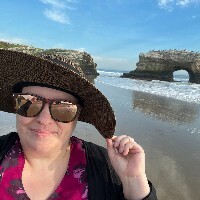
Chiara Cameron-Wood
Executive Director
211 Northeast Michigan
Chiara Cameron-Wood is graduated with an Associates Degree in Business, Bachelors in Psychology, and a Masters in Human Services with a specialization in Social and Community Resources. She has served her community in several nonprofit roles, including volunteer coordination with United Way of Northwest Ohio and Hannah's Socks, before moving to Utah and becoming part of the 211 program there. She started as a lead and quickly became the Program Director and then the Managing Director of 211 Utah. She held that position for 5 years before becoming a part of AIRS and now serves as the Executive Director. Chiara lives in Lehi, Utah, with her husband Jeff, near their 7 children and the stunning natural beauty of the Rocky Mountains and national forests. She enjoys traveling, writing, meditation, baking shows, musicals, shallow high school comedies, singing, and playing the piano whenever she can.
-
Contains 3 Component(s), Includes Credits
Our communities are becoming more open and diverse, with countless community members, clients, and staff identifying within the LGBTQ+ umbrella. But are our practices, both in and out of the workplace, helping create inclusive spaces? Now is the time to make sure we’re equipped to cultivate safe, welcoming, and inclusive environments for all diverse gender identities. In this training, we'll explore introductory definitions around LGBTQ+ identities, as well as pronouns and how to create inclusive workspaces for both staff and clients: what are gender-neutral pronouns, and how do I use them? What if I accidentally misgender a client or coworker? Why is it important to use expansive & inclusive language? All of these questions will be covered in this training, which seeks to provide an open space for vital conversations on gender inclusivity in the workplace and beyond.
Our communities are becoming more open and diverse, with countless community members, clients, and staff identifying within the LGBTQ+ umbrella. But are our practices, both in and out of the workplace, helping create inclusive spaces? Now is the time to make sure we’re equipped to cultivate safe, welcoming, and inclusive environments for all diverse gender identities. In this training, we'll explore introductory definitions around LGBTQ+ identities, as well as pronouns and how to create inclusive workspaces for both staff and clients: what are gender-neutral pronouns, and how do I use them? What if I accidentally misgender a client or coworker? Why is it important to use expansive & inclusive language? All of these questions will be covered in this training, which seeks to provide an open space for vital conversations on gender inclusivity in the workplace and beyond.
Key Takeaways:
- Understand basic LGBTQ+ and gender terminology and how it applies to our workplace
- Understand how to use gendered and gender-neutral pronouns
- Understand how to "correct" yourself if you accidentally misgender a client or coworker
- Understand the importance of creating a safe and diverse workplace.
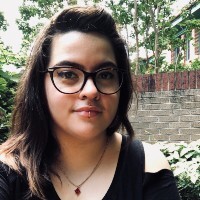
Gabriela Cano
Service Navigator
Community Service Council, Tulsa, Oklahoma
Gabriela Cano (they/them) is a Service Navigator at the Community Service Council in Tulsa, Oklahoma. They obtained a BA in Sociology from UC Berkeley and has also worked with LGBTQ+ youth, families recovering from child abuse & institutional marginalization, as well as survivors of domestic and sexual violence. They work to ensure all marginalized and institutionally oppressed communities have a seat at every social work agency's table.
-
Contains 3 Component(s), Includes Credits
Working with challenging calls can be one of the most difficult tasks required of us as Community Resource Specialists. The reasons a call may be challenging can vary; as such, different approaches and techniques will be more or less effective depending on your caller type. In this workshop, we will discuss various categories of challenging calls, discuss approaches to tackling the challenges presented, and role-play several scenarios.
Working with challenging calls can be one of the most difficult tasks required of us as Community Resource Specialists. The reasons a call may be challenging can vary; as such, different approaches and techniques will be more or less effective depending on your caller type. In this workshop, we will discuss various categories of challenging calls, discuss approaches to tackling the challenges presented, and role-play several scenarios.
Key Takeaways:
- Different reasons calls may present as challenging
- Various categories of challenging calls
- Techniques to de-escalate whenever possible
- Working with racist or abusive callers
- When it’s time to let a caller go, and how to do so
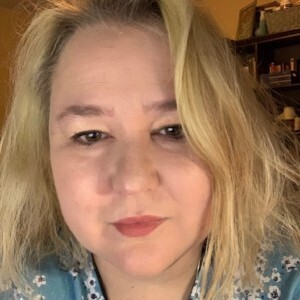
Julie Nurmi
Team Lead of the 211 Program - Canadian Mental Health Association – Edmonton
Canadian Mental Health Association, Edmonton, Alberta
Julie Nurmi is the Team Lead of the 211 Program - Canadian Mental Health Association – Edmonton. She has 9+ years of experience in answering 211, both front line and in a supervisory capacity. She is AIRS and CCW Certified and is the Lead Trainer for the 211 Program. She has a BA in Psychology (cum Laude) and has experience presenting on 211, further educating the public on the services offered.

Dagr Fjell
211 Community Resource Specialist
Canadian Mental Health Association, Edmonton, Alberta
Dagr Fjell (they/them) is an experienced 211 Community Resource Specialist who is both CRS and Crisis Worker Certified. After working for the Canadian Mental Health Association – Edmonton Region for several years in an administrative role, Dagr was drawn to the Distress Line program and became a volunteer in January 2017. When a role as a 211 CRS came up in January 2018, Dagr, being passionate about social justice and working with those in need, quickly applied for and was hired as a Permanent 211 CRS. Dagr has plenty of experience presenting in the past and is currently volunteering as a SMART Recovery group facilitator. In addition to these roles, in their spare time, Dagr is working on a book to help bring light to the struggles facing the homelessness population in Edmonton, Alberta. They enjoy writing, reading, walks in nature and have recently taken up cooking.
-
Contains 3 Component(s), Includes Credits
One of the biggest challenges facing older adults and people with disabilities is finding transportation services in their community that meet their needs. This session will focus on transportation and mobility options for older adults and people with disabilities when driving is no longer an option. Topics will include the importance of mobility for social connections and health, the range of mobility options, transportation accessibility, and ADA considerations. Information on finding community resources for transportation through information and referral/assistance (I&R/A) programs, the role of mobility managers, and assistance from aging services and CILs will also be provided. An introduction to a new I&R resource from the Eldercare Locator called the Disability Information and Assistance Line (DIAL) will be featured. DIAL specialist refers callers to the appropriate local transportation and other key community resources, taking their unique mobility needs into consideration.
One of the biggest challenges facing older adults and people with disabilities is finding transportation services in their community that meet their needs. This session will focus on transportation and mobility options for older adults and people with disabilities when driving is no longer an option. Topics will include the importance of mobility for social connections and health, the range of mobility options, transportation accessibility, and ADA considerations. Information on finding community resources for transportation through information and referral/assistance (I&R/A) programs, the role of mobility managers, and assistance from aging services and CILs will also be provided. An introduction to a new I&R resource from the Eldercare Locator called the Disability Information and Assistance Line (DIAL) will be featured. DIAL specialist refers callers to the appropriate local transportation and other key community resources, taking their unique mobility needs into consideration.
Key Takeaways:
- Participants will learn how the National Aging and Disability Transportation Center (NADTC) and Eldercare locator provide information on transportation options.
- Better understand the array of community resources that may be available to help older adults and people with disabilities choose the best transportation option available to address their specific needs.
- Understand the importance of mobility and transportation accessibility to keep older adults and people with disabilities socially connected to their community and essentials services.
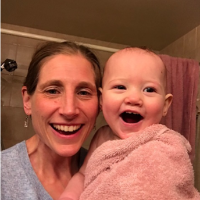
Sara Tribe Clark
Director of the Eldercare Locator
USAging, Washington, District of Columbia
Sara Tribe Clark is the Director of the Eldercare Locator within USAging. In this role, Sara oversees the operation of the Eldercare Locator Call Center, ensuring the responsive connection of people to community resources. Sara has nearly 20 years of experience in aging and disability services. Before joining USAging, she helped build the District of Columbia’s Aging and Disability Resource Center; was Director of the National Information and Referral Support Center at the ADvancing States; and spent 8+ years working within the aging and disability networks in Massachusetts. Sara’s time outside of work is spent on the other end of the age spectrum with a 3-year-old son and a 1-year-old daughter.

Ken Thompson
National Aging and Disability Transportation Center, Silver Spring, Maryland
Easterseals, Washington, District of Columbia
Ken Thompson is currently the Training and Technical Assistance Coordinator for the National Aging and Disability Transportation Center. He supports the NADTC by providing technical assistance, training and information to customers on a variety of issues including accessible transportation, the ADA, veterans' issues, building partnerships, and service planning. He responds to customers seeking information on a variety of issues related to accessible transportation. His over twenty years' experience working in human services includes managing a human service transportation system that followed a U.S. Navy stint working in aviation. Ken holds a Masters in Public Affairs and B.A. from Hood College in Maryland. He has completed the ADA Coordinator's Training Certification Program, University of Missouri College of Human Environmental Sciences and is a Community Resource Specialist (CRS).

Heather Edmonds
Program Associate for the National Aging and Disability Transportation Center (NADTC)
USAging, Washington, District of Columbia
Heather Edmonds is the Program Associate for the National Aging and Disability Transportation Center (NADTC) in USAging. Heather has more than 10 years in information and referral working with various agencies within the U.S. Department of Health and Human Services. Heather holds Master of Science in Community Health from Towson University and is CRS-A/D certified. In addition, she provides technical assistance to transportation professionals on accessible transportation addressing the needs of older adults and people with disabilities and grants management support. She enjoys exercising, live music, and spending time with family and friends in her spare time.
-
Contains 2 Component(s), Includes Credits
Managing resource data is hard enough – managing resource data that’s being used by multiple organizations for multiple purposes is even more complex! And yet this kind of multi-lateral resource data management is increasingly important for I&Rs. This panel will take a deeper look into unsolved problems of managing resource data used by (or even maintained by) multiple partners and engage participants in discussing tactical approaches and strategic opportunities to find new solutions.
Managing resource data is hard enough – managing resource data that’s being used by multiple organizations for multiple purposes is even more complex! And yet this kind of multi-lateral resource data management is increasingly important for I&Rs. This panel will take a deeper look into unsolved problems of managing resource data used by (or even maintained by) multiple partners and engage participants in discussing tactical approaches and strategic opportunities to find new solutions.
Key Takeaways:
- How can we best manage multiple vocabularies for categorizing services in situations where partners use different taxonomies?
- How can we accommodate different inclusion and exclusion criteria as required by different partners – without creating different databases?
- How can we share updates to records managed by other partners – can we do better than email?
- To what extent should these challenges be addressed by policies and practices, and to what extent do we want or need technology functionality to support such collaboration?
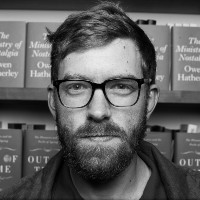
Greg Bloom
Founder
Open Referral, Miami Beach, Florida
Greg Bloom is the founder of the Open Referral Initiative, a community of practice that fosters open access to information about the health, human, and social services available to people in need. He is a visiting scholar at Indiana University’s Ostrom Workshop on the Commons. He also sits on the Technology Advisory Committee for the Gravity Project, which is facilitating the development of interoperability for client information exchange among healthcare and human service providers. Previously, Greg managed communications for Bread for the City in DC.
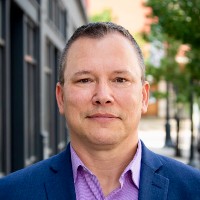
Tim Sullivan
Director
Washington 2-1-1 Network, Seattle, Washington
Tim Sullivan is the statewide director for Washington 211, the lead organization that administers the 211 information and referral system for the State of Washington. Tim received his Bachelors of Science degree from Central Washington University in 1992 and shortly after started his career in social services working for the Yakima County Gang Prevention Intervention Coalition as a program manager. In 1995, Tim was hired by the United Way of Central Washington, where he worked as the Community Impact Director for 15 years.
In 2004, Tim became involved in the issue of homelessness and helped establish the Homeless Network of Yakima County, a coalition that developed and implemented Yakima County’s first 10 Year Plan to End Homelessness. In 2006, Tim was contracted by Yakima County to develop the County’s first housing and homeless programs and later became a Senior Manager for Yakima County Human Services. In August 2016, Tim became the Statewide Director for Washington 211.
Tim is a member of the 2-1-1 National Steering Committee and chairs the SDOH Taskforce. Tim is also a founding board member of Justice Housing Yakima, a non-profit organization that is dedicated to building permanent housing for chronically homeless individuals using tiny homes. Tim makes his home in Yakima, WA with his wife Michelle of 27 years and his two children, Jessica age 22 and Ian age 13.
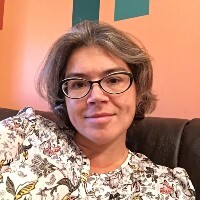
Kate Lambacher
CEO
KCL Software Solutions Inc, Burlington, Ontario
Kate Lambacher has been providing software development services to Information and Referral providers and Volunteer Centres in Canada since 1997, most notably as the developer of the software behind the OpenCIOC I&R and Volunteer Matching software project since 2002. For more than 15 years she has been assisting I&R providers to navigate successful data exchanges across systems, develop multi-tenant data maintenance systems, and create and manage data sharing agreements between many sizes and types of organizations. In addition to her work with the I&R and Volunteer Services sectors, Kate serves as a board member for the Canadian Mental Health Association Halton Region branch.
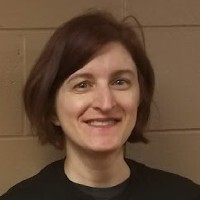
Hannah Newton
Resource Center Manager
King County 211, Seattle, Washington
Hannah Newton is the Resource Center Manager for King County 211 and the statewide database coordinator for Washington state. She has been a certified database curator since 2006. She maintains the knowledge base for the COVID-19 hotline in Washington state and is an AIRS database reviewer. Currently, she is trying not to kill all the flowers she planted since COVID as well as taking care of three cats and two children.
-
Contains 2 Component(s), Includes Credits
Everyone wears their rose-tinted glasses, viewing the world through their unique lens based on their knowledge and experiences - or Mental Maps. In this session, you will shatter those glasses and learn to challenge your assumptions and implicit bias to create a more accurate worldview.
Everyone wears their rose-tinted glasses, viewing the world through their unique lens based on their knowledge and experiences - or Mental Maps. In this session, you will shatter those glasses and learn to challenge your assumptions and implicit bias to create a more accurate worldview.
Key Objectives:
- Understand what shapes your Mental Map/Worldview
- Knowledge of the Ladder of Inference and Impact of your Mental Maps
- Expand and create more accurate Mental Maps through effective inquiry
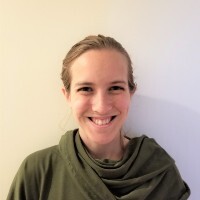
Ana Hollander
Program Development Manager
211LA, Los Angeles, California
Program Development Manager at 211 LA, Ana comes from a background in providing direct services and training for various nonprofit organizations. Ana currently leads professional development workshops with a focus on leadership skills and challenging one's own assumptions and bias. In her spare time she enjoys cuddling her dog, Buffy and reading.
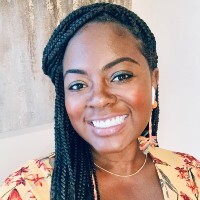
Vanessa Gentle
Learning Development
211 LA, Los Angeles, California
Vanessa Gentle was recently promoted to the Learning Development role at 211 LA. She previously filled the role as a Performance Coach exclusively for COVID-19 response.
In her spare time, she enjoys cooking vegan dishes, listening to various music genres, and exploring fun adventures with her 2 children.
-
Contains 3 Component(s), Includes Credits
You are the Superhero of Data Quality. You are on the front lines every day, responding to different and sometimes dire needs from the people in our community, state, or across the country. They've called because they're out of options and they need your attention, empathy, and experience to help them take the next steps. And given all that, we are talking data quality? Yes! This session will help explain why it matters more than you might think, and will provide information and handouts to share with your colleagues back home.
You are the Superhero of Data Quality. You are on the front lines every day, responding to different and sometimes dire needs from the people in our community, state, or across the country. They've called because they're out of options and they need your attention, empathy, and experience to help them take the next steps. And given all that, we are talking data quality? Yes! This session will help explain why it matters more than you might think, and will provide information and handouts to share with your colleagues back home.
Key Takeaways:
- Review some real-world examples of data quality: when it's great, or horribly wrong
- Exploring Community Information Exchanges: data quality on steroids
- Learn how APIs use your data in real-time
- Reporting: what you enter drives decisions but only if the data can be used
- Learn the call handling techniques that can improve data quality without sacrificing the human connection
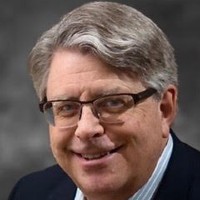
Dr. W. Douglas Zimmerman
VisionLink, Boulder, Colorado
Dr. W. Douglas Zimmerman is the President and CEO of Visionlink, one of the leading providers of community services, disaster relief, and data exchange solutions. His staff deploy systems that move 100's of millions of pieces of data every week, between different systems, using different standards, different technology, and different security standards. Zimmerman is most passionate about building systems of systems, and when done well, helping leaders and stakeholders create interoperable networks of data flows that reduce workloads, and leverage better outcomes. Zimmerman hails from Colorado, loves the mountains and skiing, and is happy his two kids are finally out of college! -
Contains 3 Component(s), Includes Credits
Using the 211 LA County Taxonomy of Human Services to index or search for services can seem overwhelming. We’re here to show you the basics of using the Taxonomy effectively so your resource database will help connect people to the services they need.
Using the 211 LA County Taxonomy of Human Services to index or search for services can seem overwhelming. We’re here to show you the basics of using the Taxonomy effectively so your resource database will help connect people to the services they need.
Key Takeaways:
- Effectively use the 211 LA County Taxonomy to index resource data
- Create efficient resource searches for Community Resource Specialists and the general public
- How to find answers to your Taxonomy questions after the conference is over
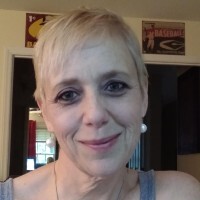
Laura "LJ" James
Director or Resource Strategy and Technology Integration
United Way of North Carolina, Cary, North Carolina
Laura James is the Director or Resource Strategy and Technology Integration for United Way of North Carolina. She has previously been the Resource Director for 211LA and holds both the Certified Community Resource Specialist and Database Curator certifications. She holds an MBA and Masters or Human Resources from Keller Graduate School of Management. She is a self-proclaimed resource nerd and after time spent as in the payments industry as well as corporate training, she has found her niche in the resource world, particularly in helping other people learn about tools and topics around all things resource.
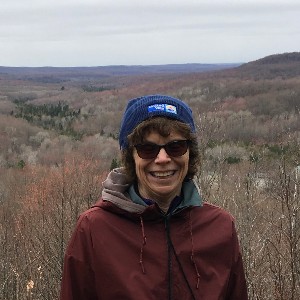
Kathy Sheridan
Statewide Quality Assurance Manager
MI 2-1-1, Lansing, Michigan
Kathy previously worked as a Resource Specialist for the United Way for Southeastern Michigan in Detroit, before moving to her current position as the Statewide Quality Assurance Manager for Michigan 2-1-1. With over 15 years in the field of Information and Referral services, Kathy is a Certified Resource Database Curator and holds a Master’s in Public Administration.
-
Contains 3 Component(s), Includes Credits
Have you ever wondered why we perform active listening as de-escalation in a crisis and why this is effective? This presentation will outline what happens in the brain when a person is in a crisis state and why active listening can restore neocortical functioning. The presenter will discuss the evolution of a crisis state and the changes in the brain during the build-up to a crisis when a person is in an active crisis state. The presenter will review how to practice active listening with a caller and how this technique de-escalates and restores the brain to its "resting" state. Active listening builds rapport, establishes trust, and returns the caller to a state of de-escalation and rest. Learn why this tool should be the foundation of crisis call work!
Have you ever wondered why we perform active listening as de-escalation in a crisis and why this is effective? This presentation will outline what happens in the brain when a person is in a crisis state and why active listening can restore neocortical functioning. The presenter will discuss the evolution of a crisis state and the changes in the brain during the build-up to a crisis when a person is in an active crisis state. The presenter will review how to practice active listening with a caller and how this technique de-escalates and restores the brain to its "resting" state. Active listening builds rapport, establishes trust, and returns the caller to a state of de-escalation and rest. Learn why this tool should be the foundation of crisis call work!
Key Takeaways:
- Develop an understanding of crisis theory and model of a crisis state
- Understand what is occurring in the neocortical functioning of the brain in the development of a crisis state, active crisis state, and de-escalation of a crisis state
- Demonstrate how to utilize "active listening" tools
- Understand how active listening both builds rapport and de-escalates crisis callers and why this is a foundational tool
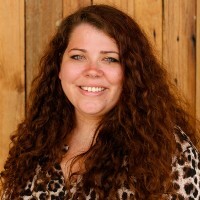
Sherrard Crespo
Outreach and Traumatic Loss Coordinator
VIA LINK, New Orleans, Louisiana
Sherrard Crespo is an LMSW currently under BACS supervision to obtain her LCSW license. She graduated with her Master's Degree from the LSU School of Social Work in May of 2017. Her professional background is highlighted by her work with suicide education, prevention, intervention, and postvention. Sherrard is currently employed with VIALINK in the position of Outreach and Traumatic Loss Coordinator where her current duties include: clinical oversight of VIA LINK's 24/7 call center, VIA LINK internal training on suicide risk assessment, community outreach and education on VIA LINK services as well as specialized skills and information on suicide, and facilitation of VIA LINK's three support groups: Survivors of Suicide Loss, NOLA Survivors, and “Real Talk” a support group for teens with suicide ideation.

